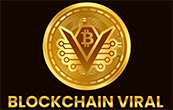During October, sales volume increased by 18%, the NFT market staged a notable comeback following a slump series. Monthly NFT volumes rose to $356 million from a low of roughly 300 million dollars in September, which is the lowest since 2021, according to data from CryptoSlam. The number of NFT trades had been steadily declining until March, when annual rates reached a peak of $1.6 billion; this rise marked a significant departure from previous patterns.
Source: CryptoSlam
Trade volumes have decreased by 20% since August only, September proved to be a difficult month for the NFT industry. Many people were unsure about the future of digital collectibles because the market had significantly declined. October’s figures offered a new hope despite the gloomy habits.In addition to a significant rise in dollar amount, the month’s transactions totaled 7.2 million. Traders and collectors are nevertheless interested in NFTs, as evidenced by this spike, which was 42% greater than the five million deals in September.
Weekly trading data from late September to early October also showed heightened interest in NFTs. During the week of September 30 to October 6,Sales of NFT totaled $84 million, marking the most active week since August. This performance was influenced by top collections, with the Mythos Chain-based DMarket heading the way with a total of $33 million in revenues during a thirty-day period. Numerous platforms are seeing renewed activity, indicating that this expansion has not been restricted to any one blockchain.
Top Performers in October’s NFT Market
Several NFT collections experienced strong sales in October. Following DMarket, Guild of Guardians Heroes, hosted on Immutable, recorded a volume of $13 million. Collections of Bitcoin and Ethereum-based products like CryptoPunks, Bored Ape Yacht Club, and Bitcoin Puppets also performed well, showing a diverse spread across different blockchain ecosystems. Popular collections such as DogeZuki, Froganas, and Retardio Cousins helped Solana-based NFTs stand out as well, with sales of around $25 million.
The Solana ecosystem has become a prominent force in the NFT world. In October, the overall monthly amount hit $67 million. Solana’s total sales volume now stands at around $6 billion, representing 19% of the NFT industry. Solana is now ranked as the most active platform for NFT operations, after Ethereum, thanks to this increase. The consistent profitability of Solana’s NFT ecosystem indicates that there is a high demand for collectibles based on blockchain technology on platforms other than Bitcoin and Ethereum.
Despite the recent uptick in sales volume, some high-profile NFTs continue to see sharp price drops. A CryptoPunk NFT initially purchased for 8,000 ETH (valued at $23.2 million at the time) sold at an 80% discount, fetching around $3.9 million or 1,500 ETH. The original buyer, Deepak Thapliyal, parted with the X’s token, while VOMBATUS described the deal as nearly “free.” This sale reflects the volatile nature of the NFT market, where values can fluctuate significantly over time.
Not every change in the area of NFT has been good. Large corporations have started withdrawing from NFT participation. Starbucks made the decision to end its NFT rewards loyalty scheme in March, signaling a change in the international coffee giant’s approach. In a similar vein, after cutting back on its cryptocurrency-related services during the previous two years, gaming retailer GameStop announced in January that its NFT marketplace will be closing. Another noteworthy action was taken by Elon Musk’s company, X, which eliminated the option for premium customers to utilize NFT photos as their profile photographs.
The NFT market’s recent resurgence suggests a renewed interest in digital collectibles, even as some major brands exit the space. Although platforms like Solana are gaining market dominance because of October’s spike in sales and transactions, Bitcoin and Ethereum collections are still well-liked among collectors. Recent changes in NFT prices demonstrate that the market is still dynamic and erratic, offering both substantial dangers and development prospects. These advancements underscore the continuous changes in the larger crypto scene, where innovation and instability coexist, as NFTs continue to improve.



